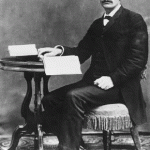Four score and seven years ago our fathers brought forth on this continent, a new nation, conceived in Liberty, and dedicated to the proposition that all men are created equal.
Few words are more well known. I love the speeches of Lincoln. While this speech may not be his greatest, I think that in many ways encapsulates what made Lincoln great.
Now we are engaged in a great civil war, testing whether that nation, or any nation so conceived and so dedicated, can long endure.
This speech takes place November 19, 1863 (exactly 113 years to the day be for my birth). In January of 1863, Lincoln signs the Emancipation Proclamation. Both of these events were part of an active attempt by Lincoln to make the war about slavery. In doing so, he would claim the moral high ground and keep the British out of the war.
We are met on a great battle-field of that war. We have come to dedicate a portion of that field, as a final resting place for those who here gave their lives that that nation might live. It is altogether fitting and proper that we should do this.
Many of the greatest speeches in history have been funeral orations. One that particularly stands out to me is the Funeral Oration of the Athenian General Pericles. Like Pericles, Lincoln not only pays tribute to the dead, but he also crafts a message about the cause for which they died and for which others still die.
But, in a larger sense, we can not dedicate — we can not consecrate — we can not hallow — this ground. The brave men, living and dead, who struggled here, have consecrated it, far above our poor power to add or detract. The world will little note, nor long remember what we say here, but it can never forget what they did here.
There is a certain humility in this statement which I find throughout the speeches and letters of Lincoln. Of course, do remember what was said there, at least what was said by Lincoln. In this case, the cause for which so many died was in many ways articulated by this address.
It is for us the living, rather, to be dedicated here to the unfinished work which they who fought here have thus far so nobly advanced.
This nation was born committed to liberty and equality. Thousands have died on battlefields like Gettysburg. What then are we the living, and future generations, to do? Lincoln has a simple but powerful response.
It is rather for us to be here dedicated to the great task remaining before us — that from these honored dead we take increased devotion to that cause for which they gave the last full measure of devotion — that we here highly resolve that these dead shall not have died in vain — that this nation, under God, shall have a new birth of freedom — and that government of the people, by the people, for the people, shall not perish from the earth.
It is for us to make sure that there is a “new birth of freedom.” That freedom is embodied in the idea of “government of the people,by the people, for the people.” This democratic sentiment is not found in founding documents. Lincoln is making an aspirational claim. We have not been a “government of the people,by the people, for the people” up until this point.
Of course, we are not there yet today. However, the 13th, 14th, and 15th amendments gave us a legal framework for achieving Lincoln’s ideal.
Why post about Lincoln on Easter? Because Lincoln uses the idea of the resurrection to craft his argument. He speaks of birth and death. The birth of the nation. The deaths of soldiers and the near death of a nation-state.
The resurrection in this case is a new nation, one more committed to liberty and equality than before. When Christ was resurrected, he not only lived again but he lived in a more perfect form. A form which would not perish.
Lincoln did not envision going back to the form of government which we had before the Civil War, but a better more perfect one.












